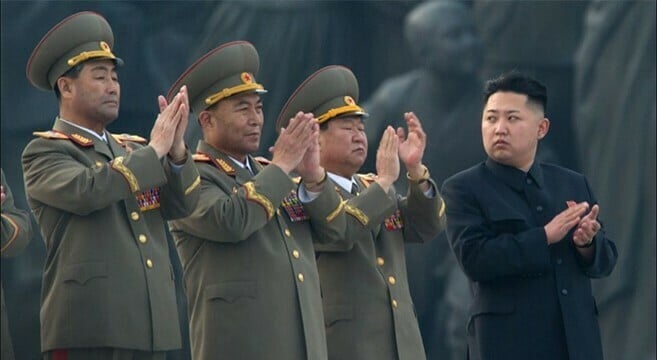In recent months, there have been numerous cases of North Korean elites reemerging after months of absence from public view. For several of these officials, there is evidence to suggest they were undergoing reeducation and even punishment due to some infraction or shortcoming. These examples may be evidence of a shift in Kim Jong Un’s method of disciplining senior officials and exerting his supreme authority over regime elites. This trend itself may be a sign that Kim and the rest of the core leadership now feel more secure and stable as the rulers of North Korea.
Throughout much of Kim Jong Un’s reign thus far, he has become known for a “reign of terror” in which many senior elites and even his own uncle, Jang Song Thaek, have been executed in violent purges intended to remove potentially disloyal or rival elements from the regime. As of July, Kim reportedly has had around 70 senior officials executed since coming to power in December 2011 (not including deaths, by execution or otherwise, of average North Korean citizens).
In recent months, there have been numerous cases of North Korean elites reemerging after months of absence from public view. For several of these officials, there is evidence to suggest they were undergoing reeducation and even punishment due to some infraction or shortcoming. These examples may be evidence of a shift in Kim Jong Un’s method of disciplining senior officials and exerting his supreme authority over regime elites. This trend itself may be a sign that Kim and the rest of the core leadership now feel more secure and stable as the rulers of North Korea.
Throughout much of Kim Jong Un’s reign thus far, he has become known for a “reign of terror” in which many senior elites and even his own uncle, Jang Song Thaek, have been executed in violent purges intended to remove potentially disloyal or rival elements from the regime. As of July, Kim reportedly has had around 70 senior officials executed since coming to power in December 2011 (not including deaths, by execution or otherwise, of average North Korean citizens).
Become a member for less
than $5.75 per week.
Unlimited access to all of NK News: reporting, investigations, analysis
The NK News Daily Update, an email newsletter to keep you in the loop
Searchable archive of all content, photo galleries, special columns
Contact NK News reporters with tips or requests for reporting
Get unlimited access to all NK News content, including original reporting, investigations, and analyses by our team of DPRK experts.
Subscribe now
All major cards accepted. No commitments – you can cancel any time.












